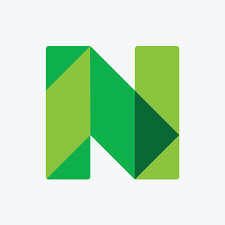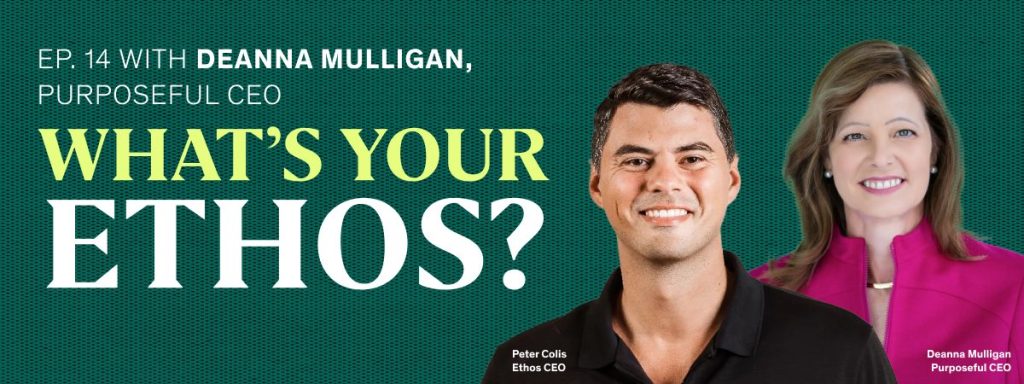Saxophone, Cyborgs, Pizza and Pop
How did you stumble into insurance?
I always knew that I wouldn’t be going into insurance. My dad was a life insurance agent for a company called Lutheran Brotherhood and I watched his struggles and successes growing up. He is a very personable and intelligent man who truly cared about his clients, but being a life insurance agent is feast or famine. Living on commissions means that there were great months where we would all go out for a pizza and a pitcher of pop and then go shopping for a new pair of shoes. But there were also months where we lived on my mom’s kindergarten teacher salary. I figured that following in my dad’s footsteps would amount to a similar experience for me.
That being said, I have always loved people. There is something immensely satisfying in creating a new relationship or deepening a long term friendship. So obviously this apple didn’t fall too far from the tree when it came to my dad’s profession in sales.
After going to college I traveled the country and made money busking for tips on the streets. If you don’t know what that is, it means that I played my saxophone with the case open in front of me. People would throw in their spare change and cash. When I was in San Francisco I even made a CD with a friend of mine, Emerson, which we titled Ball and Chain and sold for $20 each. It was really fun for about 6 months!
I met a girl during my travels and she invited me to travel back with her to her home country of Japan. Since playing the saxophone for money on the streets was beginning to lose its luster, I jumped at the chance to explore another land. While there, we started an English as a second language school. She and I are no longer together, but the school is still alive and thriving.
After a couple of years in Japan I came back to the states and settled in my hometown of Fargo, North Dakota. My dad had moved on from being a life insurance agent and had become a life insurance wholesaler. He had a small but growing practice called Hallett Financial. I needed a place to work and made the decision to join the firm.
And wouldn’t you know it, even though I had fought against going into life insurance when I was younger, I found that I really enjoyed it. The challenge of working with agents and clients to design plans to protect their family from the tragedy of death was immensely gratifying! I have never looked back since I finally resolved to try working in this amazing industry.
You’ve started your insurance career at Hallett Financial, tell me about the firm?
Hallett Financial is a wholesaler for life, disability and long term care insurance that distributes these products through independent agents and financial advisors. We work with all the major top rated insurance carriers in the industry and are known as a BGA, brokerage general agency.
Hallett has been focusing on technology since the 90’s building out our own CRM, tracking, website and quoting tools. My brother, Ryan, started us down the tech journey with a tracking program written in Lotus way back in the day. Today we have many unique software tools that allow us to drive great service for both the advisor and their clients.
Our specialty is high-end planning and policy acquisition for wealthy clients through sophisticated financial advisors. We have built deep relationships with the carriers on our platform who are very supportive of our detailed approach to underwriting and case design. Hallett is a company built on talent and hard work which means we have a strong value proposition, but a company built mainly on talent is difficult to scale.
The financial advisor is the lifeblood of Hallett Financial. The advisors that I have had the privilege to work with over the years are inspirational and truly care about the clients they represent. Our industry is sometimes viewed negatively because of a few bad apples, but the vast majority of advisors are great people who take their clients affairs to heart.
How did Quotacy, which I refer to as the online brand extension of Hallett Financial, come to fruition?
Quotacy’s purpose is saving families. There are many causes that drove us to dive in and dedicate most of our free time and savings into a new venture, but the overarching drive is purpose.
Hallett has spent the past 25 years helping all families get the life insurance coverage they need, but the cost for us to process the business is quite high. So the focus for both Hallett and our advisors must be on the wealthier families or we wouldn’t even have a business. Hallett loses a lot of money helping a 35 year old couple get life insurance to protect their family because there isn’t enough revenue from that sale to even support our staff.
But helping younger families get life insurance coverage feels great and is the right thing to do. We realized there had to be a way to accomplish this through a scalable and sustainable business model. Quotacy is our vision for how all families can get high quality service and product/underwriting expertise through technology independent of their income or budget constraints.
Quotacy is constantly balancing the consumer journey and efficiencies to fine tune a model that fulfills our purpose and that still drives a bottom line. And it is working! We invest a lot of time on the front end finding the right carrier for a consumer and setting expectations for the price of coverage based on their own unique health and lifestyle scenario. Much of this is done through technology, but that technology is built on decades of experience.
And Quotacy is so much more than a website. Getting life insurance typically takes 3-8 weeks and includes an exam and the collection of medical records. A future is coming where 70% of consumers won’t have to go through this invasive process, but that evolution has only just begun. We are building for that future while still working within the processes the insurance companies currently have in practice today. We put the consumer first, and the website is just the front door for them to access our skills and services.
We came to fruition to make a difference and believe we are doing just that.
The word on the street is that many new digital-insurtech players don’t have a go-to-market strategy, what is Quotacy’s?
Partnerships. Quotacy is a company that dives deep into our vertical. We only offer life insurance and income protection insurance. Nothing else. Our go-to-market strategy is to partner with online companies that offer other insurance products or financial advice and help them monetize the relationship they have with the consumers who trust them. We are a plug and play life insurance platform. Marketing in the online world is very expensive and the companies that have that skill set need highly paid teams to be successful. This means that to market a product like life insurance there must be real revenue or it isn’t worth their time. Because we focus on efficiency and processes, we are able to drive significant revenue back to our partners.
We help them grow, they help us with our purpose, and ultimately the consumer is given the opportunity to work with a firm that specializes in its trade.
What are your aspirations for Quotacy?
Quotacy’s mission is for every person who has loved ones who depend on them financially to have a life insurance policy. We don’t ask for contact information to quote because we believe in educating consumers on pricing. If your family depends on your income or effort, then you probably need life insurance (unless you have a trust fund).
Our aspiration is to drive engagement and relevancy around life insurance into the mind of the consumer. It isn’t that much fun to think about the fact that we are going to die someday in the future. So it is easy to put off getting life insurance. We want to show consumers that the pricing for life insurance is very affordable and that there are professionals who can take away most of the pain of buying a policy.
Our BHAG (big hairy audacious goal) is to help a million families protect their families with life insurance under the Quotacy umbrella. We still have a long way to go, but we are loving every step!
As a traditional broker-turned-entrepreneur what trends are you mostly concerned with?
The low interest rate environment is the main threat to the insurance industry. Insurance companies have made promises to people based on higher interest rate projections. They will keep those promises by contract, but the environment is wreaking havoc on the companies’ balance sheets. Pricing has slowly been increasing for coverage and this trend will continue into the foreseeable future unless the carriers embrace a new model that lowers the cost of acquisition, such as predictive modeling.
The trend of using predictive analytics in the underwriting process is revolutionary. Using big data processes, like what LexisNexis has built allows a consumer to get underwritten in a few minutes. This will create a better consumer experience and lower the cost of acquisition for the insurance companies. A better experience will increase close rates in traditional channels and will open new channels like Quotacy. Insurance is a commoditized business with very lean margins and predictive analytics manage the costs down. And since insurance is a highly competitive market, this will ultimately lower the price of insurance and make it even more affordable for the mass market.
Another trend that I am fascinated with is deep learning. We don’t see our competition as the enemy, rather we see inefficiency as the enemy. Deep learning and artificial intelligence is going to transform the consumer experience over the next decade. It will help us perform tasks that previously required human intelligence. Those efficiencies will allow us to put even more resources into the key areas that always require a human touch, such as relationship building, finding creative solutions and advocating for clients with the art of underwriting.
There’s a lot of talk about agency 2.0; that being said, what are the advantages traditional brokers have and where should they invest going forward?
SkyNet is not coming, but selling insurance door to door in suburbia is in decline. There will always be a place for traditional brokers because some people will always want to work across the table from a human. And even though the robots aren’t taking over, technology is bringing amazing tools to enhance the solutions a traditional broker brings to the table.
My advice to traditional brokers is to continue to pull technology into their practice. If technology isn’t in their wheel house in the near future it will be difficult to swim away from a sinking ship. With change comes opportunity and the brokers who either partner for technology or acquire it on their own will be the ones who have amazingly fast growing and sustainable practices.
Change your mindset towards change. 15 years ago there was a travel agency on every main street in America. We went to them for airfare, hotel bookings and advice on what to do when we went on holiday. Consumers today can go to any number of websites for their travel needs, but there are still great travel agencies around. Just not as many of them. The ones that survived and thrived figured out how to compete by changing with technology rather than fighting against it. In the end it will be the cyborg brokers, a mixture of technology and the human element that will ultimately take over.
Any noteworthy insurance players you’ve had the pleasure of working with?
Yes. The insurance industry has become intrepreneurial behind their bureaucratic fronts. Mass Mutual’s Haven Life is doing some really cool things with an online application process alongside predictive analytics. Legal and General America is pushing the envelope and is beyond testing, they are now knee deep into point of sale underwriting (getting an underwriting offer immediately after a phone call). Prudential is taking some of their best people and implementing SCRUM to envision the future of their business. Principal Financial doesn’t require an exam or medical records collection if the client fits their parameters. SBLI never requires an exam for $500k or less in face amount and under the age of 60. Just to name a few.
Most of the life insurance companies are over 100 years old and have survived depressions, wars (even our civil war), interest rate fluctuations and increasing regulations over the past century. I wouldn’t write off the creative changes coming from established companies. And it doesn’t hurt to have a market cap reaching into the many billions like most of them do. There is change coming from the insider minds of the industry.
What is the most hyped trend in insurance, in your opinion?
The most hyped trend that I see in insurance right now is to use the word disrupt. Companies tout that they are disrupting the industry. They are involved in insurance disruption. This is only my opinion, but who wants to be disrupted? When I was in middle school I was quite disruptive. Call it a case of ADD or call it being bored out of my mind. Either way, it got me sent to the principal’s office and put in detention. So the word disruption doesn’t seem like something that anyone should be proud of. My mom sure wasn’t proud of me when I was disruptive.
Rather, I think what successful insurance firms are doing is evolving. What all of us are building in the insuretech space are new and creative ways of helping consumers find solutions. We help them become aware of a problem they didn’t know they had and solve it for them. But brokers have been doing this since the dawn of insurance. That’s not disruptive, it evolutionary. This isn’t a zero sum game because brokers are here to stay. Rather, insuretech is an additive model that brings more solutions to a larger population. Win/Win.
What is the first thing you do in the morning?
When I first open my eyes in the morning I say a prayer for others, and then I go meditate for an hour. I have been a serious meditator for the past decade and my practice is the anchor for many of the complicated decisions facing both me and my companies.
We have all heard about staying present in the moment. The reason I sit every morning is that I can’t think myself into thinking differently. A meditation practice creates the habit of becoming aware, and that awareness slips into daily life. The mindfulness that comes from non-conceptual thought has helped me be a more compassionate and loving person.
My Grandma Lois was a very religious person who always talked about the golden rule. Meditation is the practice that creates habits to remind me to see that the person across the table or on the phone is just like me. They are going through life the best they can. They love their family and friends. They are sometimes in pain. They want to be happy. We are the same in so many ways. It makes it easier to treat others how I myself want to be treated. I can’t imagine my life without this morning ritual.
How did you learn of IE-now-turned-Coverager?
John Latona at Haven Life asked me if I read IE. I said I hadn’t heard of it and he forwarded me one of your publications. That was the April 27th IE edition titled “the ultimate insurance hub”. Since then I have been telling everyone I talk to that is anywhere near this space to sign up for your publication, and that’s not even because I like you so much. The content you write and put together is by far the best of its kind.






